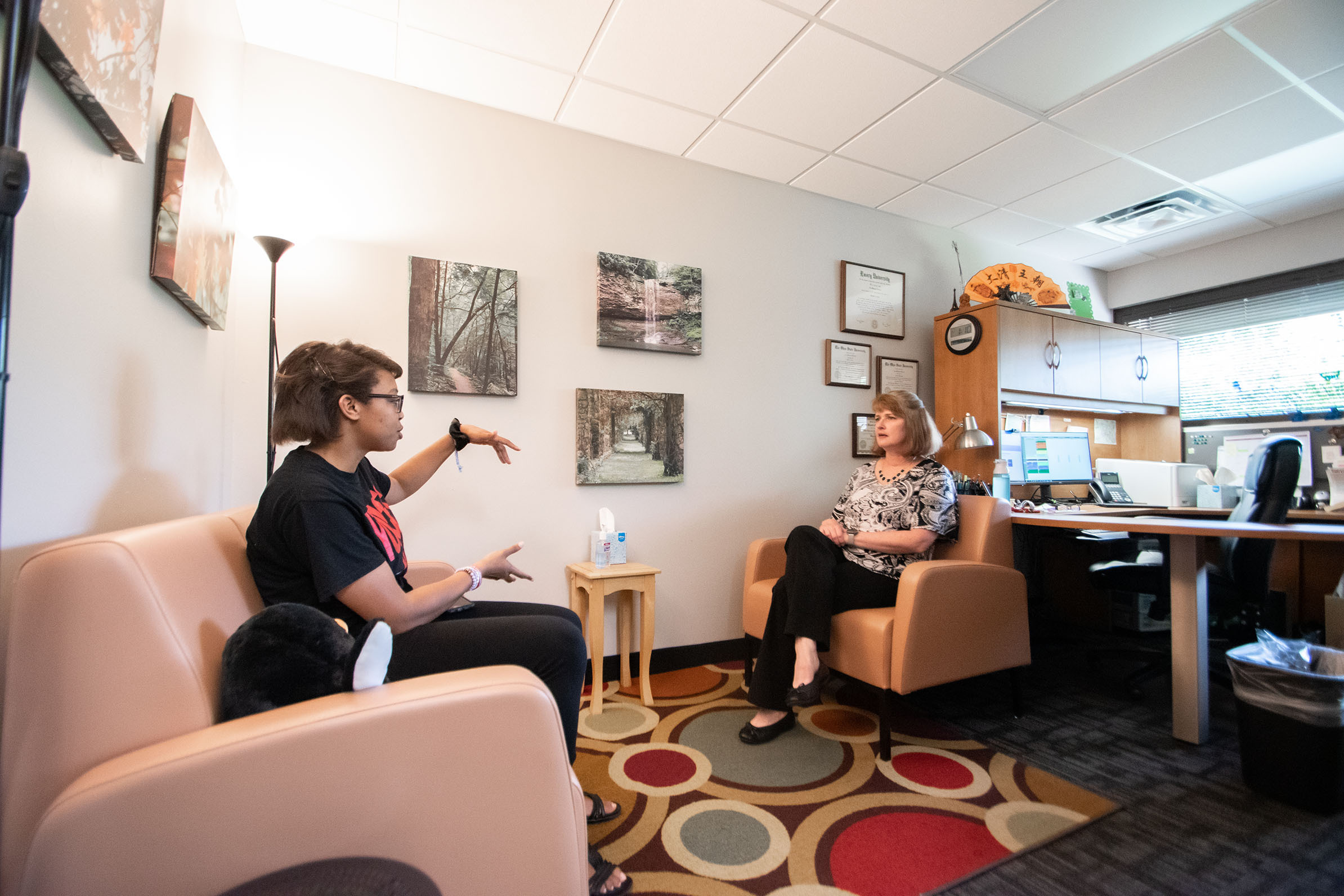Important Resources for YSU Faculty and Staff

HELP-A-GUIN
If you believe a student is missing,
or needs immediate assistance,
please contact YSU police at 330-941-3527.
FOR IMMEDIATE CONCERNS:
YSU Police - 330-941-3527
Off Campus - 911
CRISIS INFORMATION
Crisis Text Line - Text "Start" to 741741 to get help now
National Suicide Prevention Number - 1-800-273-8255
Help Network of Northeast Ohio - 330-747-2696
Student Counseling After Hours - 330-941-3737
(follow prompts to speak with a professional)
Campus Resources
Student Outreach & Support - 330-941-4721
Student Counseling Services - 330-941-3737
Disability Services - 330-941-1372
Title IX - 330-941-4629
Student Conduct - 330-941-3533
Student Health Services (Wick Primary Care) - 330-747-4660
Center for Student Progress - 330-941-3538
Student Escort Services - 330-941-1515
Referral Form
Report a "Person of Concern" to the YSU CARE Team/Office of
Student Outreach & Support.
HELPING OUR STUDENTS
Medical Issues
Recognize:
- Loss of Consciousness
- Difficulty Breathing
- Sudden Pain
- Seizures
- Physical Injury
Respond:
- Immediately call for help
- Do not move an injured person
- Reassure and calm injured/ill individual
- Stay with person until help arrives
Refer:
Urgent
- Call 911 or YSU Police 330-941-3527
Less Urgent
- Student Health Services - Wick Primary Care
330-747-4660

Behavioral/Social Issues
Recognize:
- Illness or hospitalization
- Changes in mood, appearance or behavior
- Intoxication or drug use
- Decline in school/social participation
- Relationship changes (breakup, loss of loved one, etc.)
- Food/housing insecurity
Refer:
- Student Outreach & Support
330-941-4721 - Submit Referral Form
Mental Health Issues
Recognize:
- References to suicide
- Abnormal behavior or speech
- Vague or Direct Threat
Respond:
- Express concern
- Avoid criticizing or being judgmental
Refer:
- Student Counseling Services
330-941-3737 - If emergency, call 911 or YSU Police
330-941-3527
Misconduct Issues
Recognize:
Disorderly Conduct:
- Inappropriate outbursts
- Arguing that continues beyond the scope of academic debate
Harassment:
- Phone calls, texts messages, or any form of communication continued after the individual has been told to stop
Threatening/Disruptive Conduct:
- Refusing to leave classroom
- Refusing to let others leave the classroom
- Throwing items in anger
- Having a weapon
Respond:
- Ask the student to talk to you outside the classroom
- Express your concern for the student
- Help student explore options
- In the case of threatening behaviors, immediate action should be taken
Refer:
- YSU Police 330-941-3527
- Student Conduct 330-941-3533
Crime Victimization
Recognize:
- Crying and/or running out of the classroom when sexual violence, domestic violence, stalking, or child abuse is the topic
- Visible bruise on face, throat, arms or legs
- Change in demeanor
- Appears to be afraid of another student in the same class
Respond:
- Listen to and believe what the student tells you
- Do not ask for details of what happened
- Do not blame the student
- Do not pressure the student to report the crime
- Do not report the crime or take any action without the student’s permission; Victim Advocacy can assist the student to report if that is what the student wants to do
Refer:
- Title IX Coordinator
330-941-4629 - Student Counseling Services
330-941-3737 - YSU Police 330-941-3527
Concerned about a student?
Use the “Refer a Person of Concern Form”
Contact the Office of Student Outreach & Support
330-941-4721

If you believe a student is in danger, contact YSU Police immediately at 330-941-3527.
What is the YSU CARE Team?
The CARE (Concern-Assessment-Referral-Education) Team is composed of campus personnel committed to a proactive, collaborative and planned approach to managing threatening, disruptive, disturbing or other problematic behaviors at Youngstown State University.
The CARE Team accepts referrals from students, their families, faculty, staff, and the surrounding community with the goal of providing outreach, guidance, and assistance to students dealing with a variety of issues.
What should I do if I’m concerned about a student?
|
330-941-3527 (Campus) |
|
330-941-4629 |
|
330-941-3737 |
|
330-941-1372 |
|
STUDENT OUTREACH & SUPPORT / CARE TEAM 330-941-4721 |
|
STUDENT HEALTH CENTER (NO COST) Mercy Health – Wick Primary Care at YSU |
|
330-941-3538 |
|
STUDENT SECURITY AND ESCORT SERVICES 330-941-1515 (Call YSUPD at 330-941-3527 outside of business hours) Kilcawley Center (Back of Chestnut Room) |
|
330-941-3533 |
Youngstown State University does not discriminate on the basis of race, color, national origin, sex, sexual orientation, gender identity and/or expression, disability, age, religion or veteran/military status in its programs or activities. Please visit the ADA Accessibility Page for contact information for persons designated to handle questions about this policy. July 2020
COVID-19
In an effort to keep our campus safe, and provide our students, faculty and staff with necessary support and resources, please provide information based on the protocols below.
If you:
- Tested positive for COVID-19 OR
- Had close contact with someone who has tested positive for COVID-19* OR
- If you are experiencing any COVID-19 symptoms and think you have, or know you have COVID-19**
Student:
- Do not come to campus (if you commute), stay in your room/apartment (if you live on campus)
- Notify Office of Student Outreach & Support
- Director of SOS (or designee) will contact the student; Dr. Nicole Kent-Strollo, Dir of Student Outreach & Support at nkentstrollo@ysu.edu or 330.717.2613(cell)
Faculty/Staff:
- Stay home or leave work immediately
- Notify Department Supervisor (or directly contact Director of EOHS if you are not comfortable)
- Supervisor will contact Office of Environmental and Occupational Health and Safety
- Director of EOHS (or designee) will contact the employee; Julie Gentile, Dir of EOHS at jagentile@ysu.edu or 234.241.8603 (cell)
*Close contact is defined as being within 6 feet of someone who has COVID-19 for at least 15 minutes
**COVID-19 Symptoms: fever (Temp > 100.4 F), chills, cough, shortness of breath or difficulty breathing, fatigue, muscle or body aches, headache, new loss of taste or smell, sore throat, congestion or runny nose, nausea or vomiting, or diarrhea
